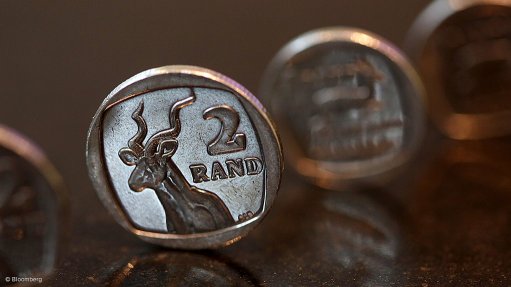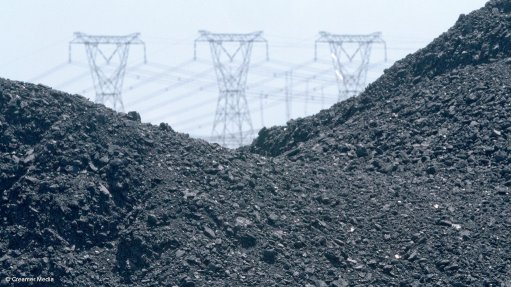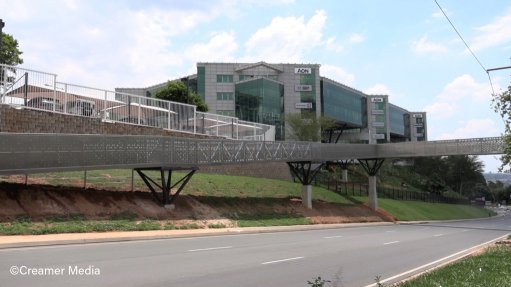Task team established to enhance service delivery


SIGNIFICANT INCREASE The 2023 Blue Drop report highlighted that the proportion of water supply systems failing to meet minimum microbiological water-quality standards increased significantly
Photo by Adobe Stock
In response to the concerning findings of the Blue, Green and No Drop reports, government has established a task team dedicated to enhancing service delivery across various municipalities.
The task team will aim to reverse the trends outlined in the reports and be led by the Department of Water and Sanitation (DWS), in collaboration with the Department of Cooperative Governance and Traditional Affairs (Cogta), and the South African Local Government Association, among others.
The task team’s establishment was one of the pivotal resolutions at a recent summit, hosted by the DWS in February, which included participation by 144 municipalities, which are classified as water service authorities (WSAs).
The aim of the summit was to galvanise efforts to review and enhance water and sanitation service delivery.
Critical to this initiative is Section 78 of the Municipal Systems Act, which mandates a comprehensive review before any service delivery mechanism changes are implemented.
According to the recent assessments, there is a stark decline in performance metrics related to water quality and sanitation services.
The 2023 Blue Drop report, for example, highlighted that the proportion of water supply systems failing to meet minimum microbiological water-quality standards increased significantly – from 5% in 2014 to 46% in 2023.
Similarly, the 2022 Green Drop report found that 39% of municipal wastewater systems were in a critical state, a significant increase from 30% in 2013. Further, the No Drop report showed an increase in municipal nonrevenue water, from 37% in 2014 to 47% in 2023.
To mitigate these challenges, extensive support has been provided by the DWS, Cogta, the Municipal Infrastructure Support Agency, the Department of Human Settlements and National Treasury.
This support encompasses water and sanitation infrastructure grants exceeding R20-billion a year, technical and engineering assistance, capacity building, training and financial management advice.
However, despite these efforts, the decline in municipal water services remains alarming, underscoring the need for more profound reforms beyond the existing support, states DWS director-general Dr Sean Phillips.
He says “fundamental changes” are needed such as ensuring that routine maintenance and operations are adequately funded through revenue from water sales, and that municipal councils prioritise budgets accordingly.
Water Service Delivery
At the heart of South Africa’s constitutional mandate is the role of municipalities as WSAs, which are tasked with the delivery of water services.
This includes deciding on the provision of services, either directly or through approved water service providers (WSPs). However, most WSAs have designated themselves as the sole WSPs, a practice that, combined with a lack of proper management, accountability and separation of powers, has contributed to the decline in service quality.
Addressing these issues, the summit resolved that all WSAs must develop action plans to tackle their deficiencies.
These plans, submitted to the DWS in February 2024, included strategies for improving water quality, infrastructure maintenance and financial management.
Additionally, training institutions are encouraged to prioritise the certification of process controllers to enhance the technical competency of those responsible for water and sanitation services.
However, Phillips laments that, despite the concerted efforts by the DWS, Cogta and other agencies to support municipalities, the effectiveness of these initiatives is contingent upon municipal leadership’s responsiveness and commitment to sustainable practices.
“The persistence of infrastructure deterioration and financial mismanagement calls for a decisive shift towards more robust governance, operational funding through revenue generation, and the prioritisation of maintenance and operations,” he states.
In response to these challenges, the DWS has initiated reforms through the gazetting of the Water Services Amendment Bill, which introduces critical reforms aimed at clarifying the roles and responsibilities of WSAs versus WSPs.
The Bill mandates the licensing of all WSPs, a move designed to ensure their financial viability, professional management and compliance with minimum standards.
This regulatory mechanism, coupled with the power to issue directives and enforce compliance, represents a significant step towards improving the governance and effectiveness of water services provision.
Further, the DWS manages the regional bulk infrastructure grant and the water services infrastructure grant, which are significant in providing support for municipal projects in line with the Division of Revenue Act framework.
This approach is integral to monitoring expenditure patterns, ensuring project implementation and providing the necessary support for municipalities, Phillips concludes.
Article Enquiry
Email Article
Save Article
Feedback
To advertise email advertising@creamermedia.co.za or click here
Comments
Press Office
Announcements
What's On
Subscribe to improve your user experience...
Option 1 (equivalent of R125 a month):
Receive a weekly copy of Creamer Media's Engineering News & Mining Weekly magazine
(print copy for those in South Africa and e-magazine for those outside of South Africa)
Receive daily email newsletters
Access to full search results
Access archive of magazine back copies
Access to Projects in Progress
Access to ONE Research Report of your choice in PDF format
Option 2 (equivalent of R375 a month):
All benefits from Option 1
PLUS
Access to Creamer Media's Research Channel Africa for ALL Research Reports, in PDF format, on various industrial and mining sectors
including Electricity; Water; Energy Transition; Hydrogen; Roads, Rail and Ports; Coal; Gold; Platinum; Battery Metals; etc.
Already a subscriber?
Forgotten your password?
Receive weekly copy of Creamer Media's Engineering News & Mining Weekly magazine (print copy for those in South Africa and e-magazine for those outside of South Africa)
➕
Recieve daily email newsletters
➕
Access to full search results
➕
Access archive of magazine back copies
➕
Access to Projects in Progress
➕
Access to ONE Research Report of your choice in PDF format
RESEARCH CHANNEL AFRICA
R4500 (equivalent of R375 a month)
SUBSCRIBEAll benefits from Option 1
➕
Access to Creamer Media's Research Channel Africa for ALL Research Reports on various industrial and mining sectors, in PDF format, including on:
Electricity
➕
Water
➕
Energy Transition
➕
Hydrogen
➕
Roads, Rail and Ports
➕
Coal
➕
Gold
➕
Platinum
➕
Battery Metals
➕
etc.
Receive all benefits from Option 1 or Option 2 delivered to numerous people at your company
➕
Multiple User names and Passwords for simultaneous log-ins
➕
Intranet integration access to all in your organisation

















